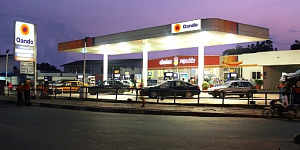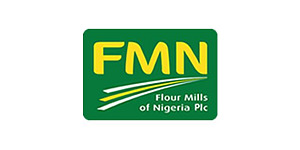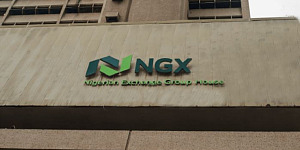The Nigerian Exchange Limited (NGX) finished the first week of 2024 on a positive note, buoyed by sustained investor confidence in listed companies.
This momentum has instilled optimism for a potentially bullish market in 2024, bringing the All-Share index up by 6.54% to close at 79,664.66 points.
Similarly, all other indices finished higher except NGX Growth and NGX Sovereign Bond Indices which depreciated by 6.38% and 1.21% respectively, while the NGX ASeM index closed flat.
Market analysts have said that the stock market has been quite eventful and bullish in 2023, and can reasonably project further improvement in 2024, as more companies approach the market for listing and public offerings.
Market performance
Available statistics to the Nairametrics showed that the All-Share Index, which is the broad index that measures the performance of Nigerian stocks, opened the trading week at 74.773.77 index points at the beginning of trading on January 2, 2024, and closed at 79.664.66 points at the end the week on January 5th, gaining 4,890.89 basis points or 6.54%.
Further analysis revealed that activities on the Nigerian Exchange Limited (NGX) which opened the trading week at N40.917 trillion in market capitalization at the beginning of trading, closed the week at N43.593 trillion, hence has earned a week-to-date gain of about N2.676 trillion.
Over the week, strong performances in DANGCEM (+1.59% w/w), AIRTELAFRI (+5.99% w/w), and MTNN (+7.95% w/w) drove the market’s positive performance, outweighing losses in STANBIC (-5.96% w/w), GUINNESS (-7.58% w/w), and CADBURY (-11.05% w/w). Consequently, the year-to-date (YTD) return rose to 6.54%.
A total turnover of 3.320 billion shares worth N41.755 billion in 46,994 deals was traded during the week by investors on the floor of the Exchange, in contrast to a total of 1.186 billion shares valued at N31.425 billion that exchanged hands last week in 23,969 deals.
The Financial Services Industry (measured by volume) led the activity chart with 2.399 billion shares valued at N26.054 billion traded in 22,833 deals; thus contributing 72.25% and 62.40% to the total equity turnover volume and value respectively.
The Conglomerates Industry followed with 213.139 million shares worth N2.434 billion in 2,284 deals. The third place was the Oil and Gas Industry, with a turnover of 163.313 million shares worth N2.054 billion in 3,443 deals.
Trading in the top three equities namely Fidelity Bank Plc, FCMB Group Plc, and Sterling Financial Holdings Company Plc (measured by volume) accounted for 767.964 million shares worth N7.289 billion in 4,589 deals, contributing 23.13% and 17.46% to the total equity turnover volume and value respectively
Market analysts’ market outlook
Mike Ezeh, the Chief Executive Officer of Crane Securities Limited, said, the emergence of President Bola Tinubu further energized the market since market participants have hope in his ability to rejig the economy and implement economy-friendly policies.
- “The elections came and were hitch-free against all unification of the multiple exchange rates, review of monetary and fiscal policies, a shake-up of major changes carried out at the apex bank and its overflow down to the deposit money banks across the country brought stability to the market.
- “The commissioning of the first indigenous private refinery which has a cyclical effect on both upstream and downstream operations of petroleum companies quoted in the market propelled the interplay in the market by some high-net-worth investors on many quoted companies resulting in high turnover in trading volumes of those companies leading to the significant increase in market capitalization within the period.”
He urged the new government in 2024 to continue to implement policies that would provide an enabling environment for businesses to thrive, saying this would help boost the nation’s Foreign Direct Investment (FDI) and attract issuers to the capital market.
Commenting, Tajudeen Olayinka, Analyst, and CEO, of Wyoming Capital and Partners said:
- “The stock market has been quite eventful and bullish in 2023, and can reasonably project further improvement in 2024, as more companies approach the market for listing and public offerings.
- The fact that government will depend largely on the use of private capital in addressing infrastructure deficit, means that we will see a better capital market.”
In his projection for 2024, Victor Chiazor, Analyst and Head of Research at FSL Securities Limited said:
- “Government policies around foreign exchange and subsidy removal hurt the economy.
- In 2024, we anticipate some level of normalization around recent policy statements by the government hence, the equities market is expected to be driven by company performance as well as new pro-market policies.”

















 FR
FR 








































